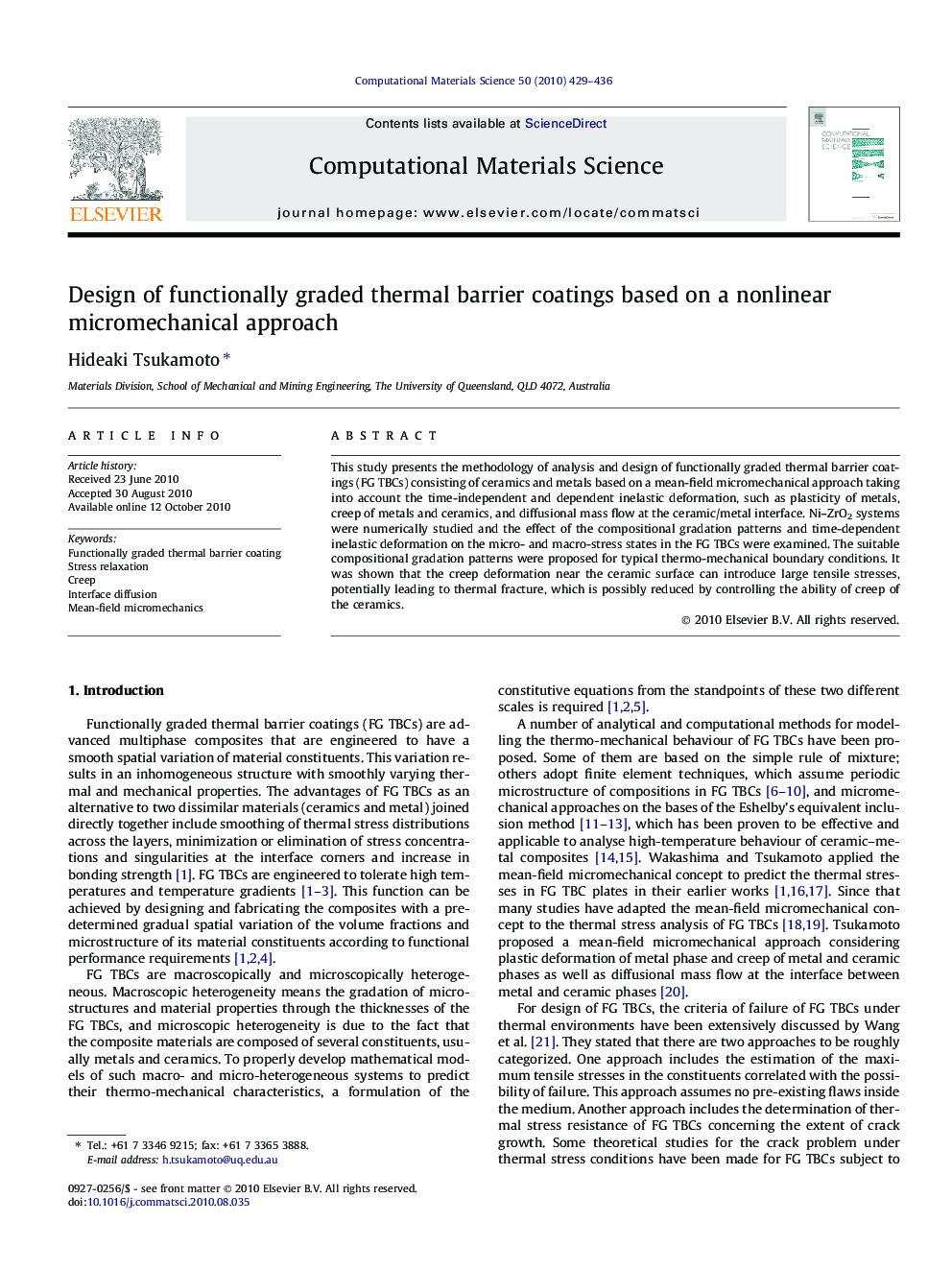| کد مقاله | کد نشریه | سال انتشار | مقاله انگلیسی | نسخه تمام متن |
|---|---|---|---|---|
| 1562828 | 999598 | 2010 | 8 صفحه PDF | دانلود رایگان |

This study presents the methodology of analysis and design of functionally graded thermal barrier coatings (FG TBCs) consisting of ceramics and metals based on a mean-field micromechanical approach taking into account the time-independent and dependent inelastic deformation, such as plasticity of metals, creep of metals and ceramics, and diffusional mass flow at the ceramic/metal interface. Ni–ZrO2 systems were numerically studied and the effect of the compositional gradation patterns and time-dependent inelastic deformation on the micro- and macro-stress states in the FG TBCs were examined. The suitable compositional gradation patterns were proposed for typical thermo-mechanical boundary conditions. It was shown that the creep deformation near the ceramic surface can introduce large tensile stresses, potentially leading to thermal fracture, which is possibly reduced by controlling the ability of creep of the ceramics.
Research highlights
► Functionally graded thermal barrier coatings (FG TBCs) is designed.
► A mean-field micromechanical approach is applied.
► The model considers diffusional mass transfer at the ceramic/metal interface.
► A practical recommendation for durable and lightweight Ni–ZrO2 TBCs is made.
► Creep ability of ceramics largely affects thermal fracture behavior of FGTBCs.
Journal: Computational Materials Science - Volume 50, Issue 2, December 2010, Pages 429–436